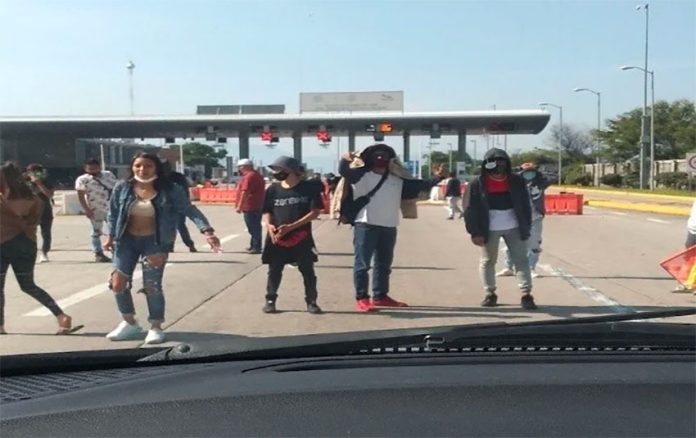Protesters who hijacked a toll plaza in Alpuyeca, Morelos, for 15 days were hired by organized crime, authorities say.
Adriana Pineda Fernández, head of the state’s specialized anti-kidnapping unit (UECS), said that the young people collecting fees from drivers at toll booths were paid up to 1,500 pesos, around US $72, per day to do so by a criminal group from Guerrero.
On Tuesday, three bus drivers who had been held hostage since October 12 by protesters at the Francisco Velasco Durán toll plaza were released after police intervened, Pineda noted.
In addition, 78 people — 43 men, 14 women and 21 minors — were arrested in the operation. The minors were turned over to the DIF family services agency.
On Thursday, 69 others — who were demanding the release of those arrested Tuesday — were arrested near police facilities in Cuernavaca after they threw rocks at police and damaged patrol cars.
Pineda says those hired by organized crime to extort money from drivers were recruited from Ometepec and Chilpancingo, Guerrero.
Pineda did not identify which criminal organization is responsible, citing an ongoing investigation.
Governor Cuauhtémoc Blanco said he had consulted with Interior Minister Olga Sánchez Cordero about the toll plaza situation and that the National Guard will be dispatched to protect the integrity of the toll plazas and arrest those who attempt to commandeer them.
Blanco also applauded the mass arrests. “I reiterate to all the people of Morelos that we are not a government with its arms crossed, but we are not an arbitrary state either. We respect all social causes and all ideas, but we are not going to stand by as the law is violated at the expense of the rights of the majority,” Blanco said.
“You are seeing the images, they are violent, they are people who attack drivers who are really desperate to get to their homes, and we are not going to allow this,” he said.
Hijacking toll plazas has become an important source of income for many people in Mexico. Last year alone the country saw revenue losses totaling 3 billion pesos (US $143.7 million), according to Capufe, the federal highways and bridges agency.
Source: Proceso (sp)
